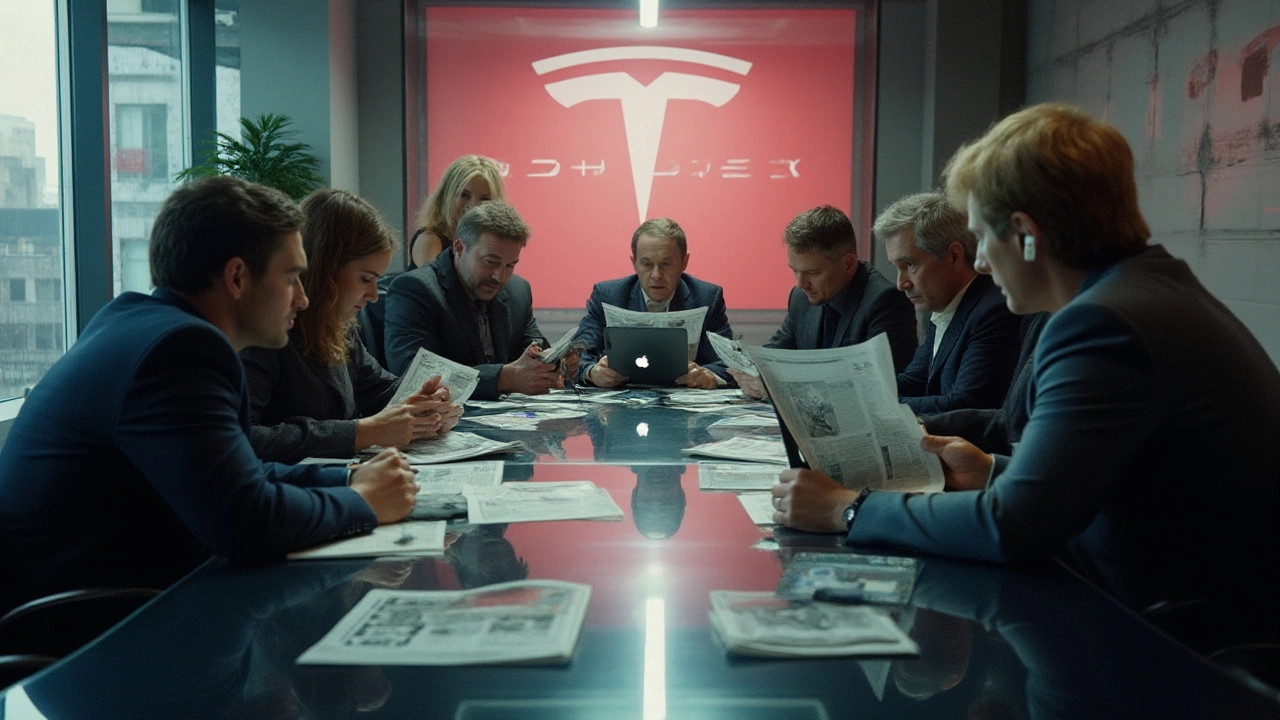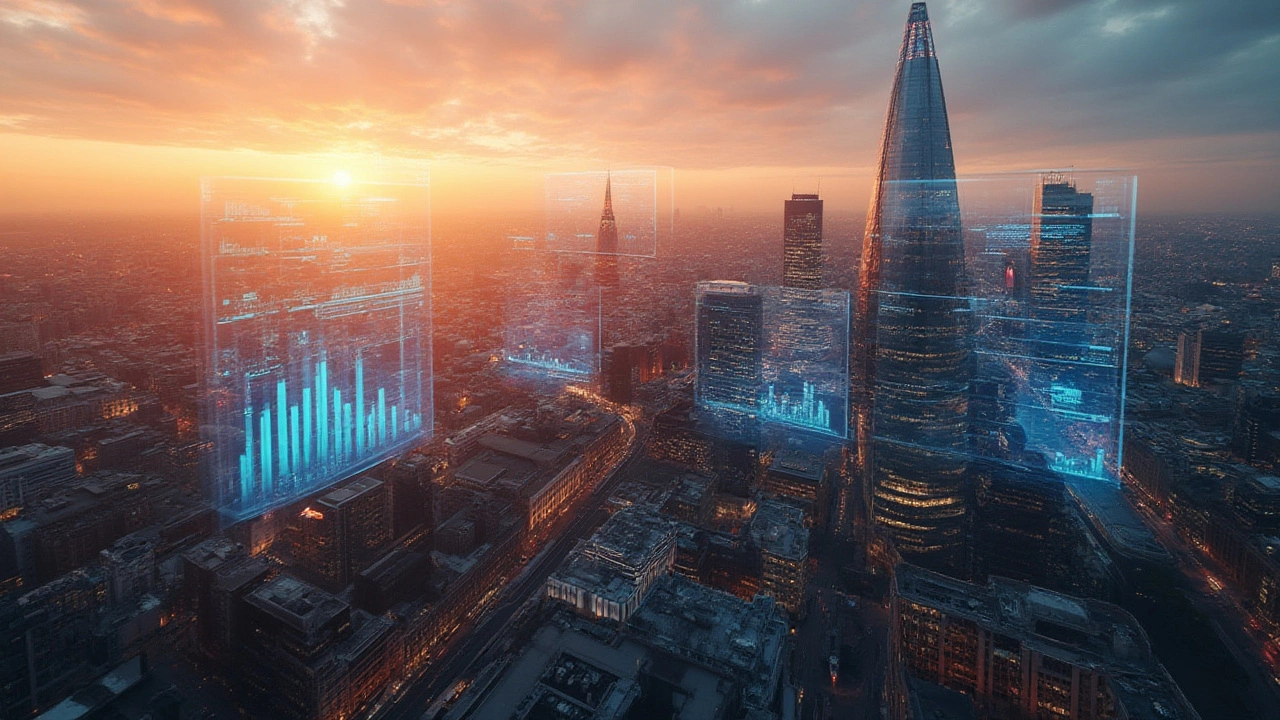The last time my friends and I argued about the hottest stock in the world, it wasn’t a new AI company or a biotech upstart. It was Tesla—again. And it’s 2025, years after Elon Musk promised a million robotaxis and just months after yet another viral video of Optimus, their humanoid robot, awkwardly folding laundry. Tesla is more than just headlines; it’s practically a cultural flashpoint for anyone even remotely interested in money or tech. So here’s the big question: is Tesla stock a buy—right now?
The Story So Far: Tesla’s Wild Ride
Let’s start with a quick reality check. Tesla has never been a boring stock. Since its IPO in 2010, its price has ballooned, crashed, rebounded, and then doubled again. In 2021, it soared past a trillion-dollar valuation—a club so exclusive you could count the other members on one hand. By mid-2025, Tesla’s market capitalization is still sitting at more than $800 billion, down from the highs but still bigger than any other car company on earth. And depending on who you ask, it’s either still wildly overvalued or just getting started.
The company’s story reads like a thriller: relentless innovation, wild promises, and sudden pivots. Six years ago, hardly anyone believed an American company would own the EV market; now Tesla delivers over 2 million cars per year, and its manufacturing plants in Shanghai, Berlin, Austin, and Mexico churn out vehicles with a speed the old automakers can’t match. Tesla’s energy division keeps growing, and their solar products and battery storage units pop up in homes and businesses everywhere. Oh, and then there’s the full self-driving promise. Depending on the day, it either works flawlessly or gets stuck behind a pedestrian on a skateboard.
Most importantly: everyone’s watching Tesla. When Elon Musk tweets, stocks across industries shift. Hedge funds, day traders, and retail investors alike scan every quarterly earnings call, looking for the smallest clue about the next big thing. In April, Tesla’s Q1 2025 numbers showed a 20% jump in energy revenue and a modest 8% rise in auto deliveries, with profit margins squeezed by new factory costs and price cuts. Wall Street cheered—but skeptics pointed at lagging profit growth and questioned how long the magic could last.
Why People Still Want to Buy Tesla
All the hype isn’t just hype. Tesla’s got real advantages, and people buy the stock for more than just a belief in Elon Musk memes. First, Tesla’s brand is gold—think iPhone-level loyalty, but for cars and green energy. Tesla buyers wait months for their vehicles, buy their charging gear, and brag about their cars to anyone who’ll listen. No other car brand, not even Porsche, has that kind of cult following.
Second, Tesla’s vertical integration remains unmatched. While GM and Ford still haggle with suppliers, Tesla builds batteries in-house and even designs its own software chips. That means tighter cost control, faster iteration, and higher margins—at least in the good years. Tesla’s Gigafactories are more like futuristic science projects than old-school assembly lines, and they’re notoriously secretive about how many cost-saving tricks they actually have up their sleeves.
Third, there’s the tech. Tesla’s Autopilot and Full Self-Driving features may make headlines for the wrong reasons, but no other automaker deploys autonomous software at this scale. Over 1.6 million Teslas worldwide run FSD beta, and the company pushes updates over-the-air like a smartphone maker. Self-driving might not be perfect yet, but Tesla’s lead in driver data, machine learning, and software-based features is real.
Last of all, Tesla’s not just about cars. Their energy business keeps growing, and their bots and AI divisions are the wildcards. In 2025, Tesla Optimus makes headlines every month. It’s not clear if they’ll be the Roomba or the iPhone of humanoid robots… but it’s a bet venture capitalists love to make. Some investors see Tesla as an energy, software, and robotics company with a car business attached.

Why Others Think TSLA Is Too Risky
Tesla hype comes with backlash. Skeptics have a shopping list of reasons why the stock might be a risky buy—even at prices below its 2021 peak. For one thing, competition is fierce. Every major automaker now sells EVs, and Chinese upstarts like BYD and NIO sell millions of electric vehicles at home (and increasingly abroad) at lower costs and thinner margins. In 2025, BYD overtook Tesla in global EV sales by volume—not headline news in the U.S., but a big deal where it matters.
Margins are thinner, too. Tesla cut prices in Europe and North America three times in the last twelve months, trying to fend off rivals. They're still profitable, but not by much, and every earnings call comes with a warning about "near-term pressure" on margins and cash flow. Wall Street hates uncertainty.
Regulators aren’t making it easier. New Federal and European rules keep shifting EV incentives, and Tesla’s under investigation for its claims about self-driving. Fines and lawsuits aren’t the end of the world, but the constant legal headaches could hurt the brand—and the bottom line.
And then there's the Big “Elon” Question. Depending on who you ask, Musk is either a genius or a distraction. He divides his time between Tesla, SpaceX, Starlink, Neuralink, and whatever new project hits social media this week. Investors often worry his focus—and unpredictable Twitter/X antics—bring unnecessary drama and risk to Tesla’s future.
Last but not least: valuation. Even after a rollercoaster 2022–2023, Tesla trades at a multiple way above traditional automakers, and higher even than most tech companies. Analysts puzzle over how much of that price is belief in future tech, and how much is just hope.
Crunching the Numbers: Tesla’s Performance in 2025
It’s tough to talk about "Is Tesla stock a buy?" without getting right into the numbers. So, here’s the latest (all numbers are as of July 2025):
| TSLA Stock Price | Market Cap | 2025 Q1 Revenue | Net Income | Price/Earnings Ratio | YOY Vehicle Deliveries |
|---|---|---|---|---|---|
| $247.40 | $810B | $28.7B | $2.32B | 63x | +8% |
Those numbers look good if you’re comparing Tesla with startups or with Big Tech giants like Apple and Nvidia. But compared to classic automakers, they seem sky-high. Ford, for example, trades at a P/E ratio of about 9. Toyota, the world’s largest carmaker by volume, sits at about 11. So, buying Tesla means betting on way more than just car profits—you're buying into the story of future dominance in software, energy, and AI-powered robots.
Growth is strong, but not spectacular. That 8% jump in vehicle deliveries is down from the 36% pace it showed back in 2022. Energy is picking up the slack, now about 18% of Tesla’s total revenue, thanks to big deals in Texas and the EU. But battery storage and solar are lower margin businesses than cars. On the plus side, Tesla’s R&D spend is at an all-time high—so at least the company is actively looking for the next big thing. Tesla stock fans love that kind of long-term focus, but others worry about the short-term pain.
Analyst price targets for TSLA in 2025 are all over the place. Goldman Sachs puts their 12-month target at $280; Morgan Stanley says $340. A few stubborn bears expect the stock to drop below $180 if interest rates spike or if a recession hits. If you like wild price swings, TSLA never disappoints. Over the past six months, shares have ranged from $202 to $271—enough to shake up even hardened investors.

Tips for Deciding If Tesla Is Right for You
So, make the call: should you buy, sell, or hold? There’s no easy answer. But here’s how I look at it—and what my wife Hannah and I talked about before deciding if TSLA has a spot in our retirement portfolio.
- Ask yourself, are you in it for the long haul? TSLA doesn’t suit short-term traders; it's a stock for believers, willing to hold through thick and thin, bad headlines, and market panics.
- Check your exposure. Tesla is now in nearly every S&P 500 ETF and mutual fund. If you've got lots of U.S. index funds, surprise: you already own a slice. Don't overload—too much Tesla means riding the wildest rollercoaster in the market. Aim for balance.
- Be honest about volatility. This stock regularly moves 5% a day on nothing but a rumor. Plan for that—set stop-losses if you must, but don’t panic sell because of minor hiccups.
- Watch competitor news. If you see BYD start destroying Tesla in Europe or Rivian unveil a truck that actually looks cool (sorry, Cybertruck), take notice. Success is never guaranteed.
- Mind the headlines—but don’t trade only on them. Elon Musk is not going to stop tweeting. But news doesn’t always equal value. Look at the financials, not just the noise.
- Consider dollar-cost averaging into your TSLA position rather than trying to call the bottom. It helps take some emotion out of a stock that makes people far too emotional.
- If you hate drama and big swings, there are safer bets in the S&P 500. But if you want a mix of high risk and possible high reward—and you can sleep through a stock losing 25% in a month—maybe TSLA fits your style.
Remember, investing in Tesla is about more than loving electric cars. It’s a bet on software, automation, and the idea that innovation will win—eventually.

